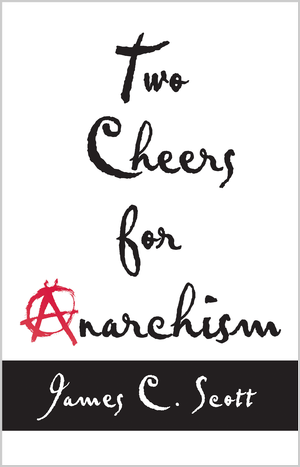
My interest in the anarchist critique of the state was born of disillusionment and dashed hopes in revolutionary change. This was a common enough experience for those who came to political consciousness in the 1960s in North America. For me and many others the 1960s were the high tide of what one might call a romance with peasant wars of national liberation. I was, for a time, fully swept up in this moment of utopian possibilities. I followed with some awe and, in retrospect, a great deal of naivete the referendum for independence in in Ahmed Sekou Toure's Guinea, the pan-African initiatives of Ghana's president, Kwame Nkrumah, the early elections in Indonesia, the independence and first elections in Burma, where I had spent a year, and, of course, the land reforms in revolutionary China and nationwide elections in India.
The disillusionment was propelled by two processes: historical inquiry and current events. It dawned on me, as it should have earlier, that virtually every major revolution ended by creating a state more powerful than the one it overthrew, a state that in turn was able to extract more resources from and exercise more control over the very population it was designed to serve. Here, the anarchist critique of Marx and, especially, of Lenin seemed prescient. The French Revolution led to the Thermidor Reaction, and then to the precocious and belligerent Napoleanic state. The October Revolution in Russia led to Lenin's dictatorship of the vanguard party and then to the repression of striking seamen and workers (the proletariat!) at Kronstadt, collectivization, and the gulag. If the ancien regime had presided over feudal inequality with brutality, the record of the revolutions made for similar melancholy reading. The popular aspirations that provided the energy and courage for the revolutionary victory were, in any long view, almost inevitably betrayed.
Current events were no less disquieting when it came to what contemporary revolutions meant for the largest class in world history, the peasantry. The Viet Minh, rulers in the northern half of Vietnam following the Geneva Accords of 1954, had ruthlessly suppressed a popular rebellion of smallholders and petty landlords in the very areas that were the historical hotbeds of peasant radicalism. In China, it had become clear that the Great Leap Forward, during which Mao, his critics silenced, forced millions of peasants into large agrarian communes and dining halls, was having catastrophic results. Scholars and statisticians still argue about the human toll between 1958 and 1962, but it is unlikely to be less than 35 million people. While the human toll of the Great Leap Forward was being recognized, ominous news of starvation and executions in Kampuchea under the Khemer Rouge completed the picture of peasant revolutions gone lethally awry.
It was not as if the Western bloc and its Cold War policies in poor nations offered an edifying alternative to "real existing socialism." Regimes and states that presided dictatorially over crushing inequalities were welcomed as allies in the struggle against communism. Those familiar with this period will recall that it also represented the early high tide of development studies and the new field of development economics. If revolutionary elites imagined vast projects of social engineering in a collectivist vein, development specialists were no less certain of their ability to deliver economic growth by hierarchically engineering property forms, investing physical infrastructure, and promoting cashcropping and markets for land, generally strengthening the state and amplifying inequalities. The "free world," especially in the Global South seemed vulnerable to both the socialist critique of capitalist inequality and the communist and anarchist critiques of the state as the guarantor of these inequalities.
The twin disillusionment seemed to me to bear out the adage of Mikhail Bakunin: "Freedom without socialism is privilege and in injustice; socialism without freedom is slavery and brutality." (ix - xii)
Scott, James C. Two Cheers for Anarchism. (Princeton, NJ: Princeton University Press, 2012)
No comments:
Post a Comment